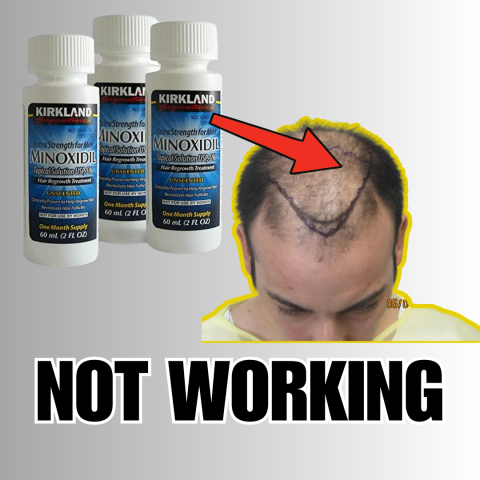Minoxidil is a popular topical treatment for hair loss, particularly androgenetic alopecia (male or female pattern baldness). It stimulates hair growth and slows hair loss for many, but it's not universally effective. If Minoxidil doesn't work for you, here are some common reasons and considerations:
Individual Variability
- Genetic Factors: Your genetics can influence how well you respond to Minoxidil. Some people respond more robustly because genetic factors determine hair growth cycles.
- Underlying Conditions: Other health issues or hormonal imbalances might affect Minoxidil's effectiveness.
Hair Loss Severity
- Advanced Hair Loss: Minoxidil is typically more effective in the earlier stages of hair loss. However, if your hair loss is advanced, It might not be sufficient to stimulate new growth.
- Hair Loss Type: It is primarily used for androgenetic alopecia, but if your hair loss is due to other causes (e.g., alopecia areata, scarring alopecia), it might not be effective.
Application Issues
- Inconsistent Use: Minoxidil must be used consistently (usually twice daily) to be effective. Missing applications or stopping treatment can reduce its effectiveness.
- Improper Application: Minoxidil must be applied directly to the scalp, not the hair. It won't work as intended if it doesn't reach the scalp.
Duration of Use
- Short-Term Use: Minoxidil can take several months to show results. Stopping early or not giving it enough time might lead to perceived ineffectiveness.
- Maintenance: Minoxidil must be used continuously to maintain results. Stopping can lead to hair loss resuming.
Lifestyle Factors
- Diet and Nutrition: Poor nutrition can affect hair health and impact how Minoxidil works.
- Stress: High-stress levels can contribute to hair loss, potentially counteracting Minoxidil's effects.
Other Medications or Treatments
- Drug Interactions: Some medications or topical treatments might interfere with Minoxidil's effectiveness.
- Combination Therapy: Minoxidil might work better when combined with other treatments like finasteride or hair restoration procedures.
If Minoxidil doesn't seem to work for you, consider consulting with a world-renowned hair transplant surgeon. They can evaluate your hair loss pattern, medical history, and potential underlying issues to recommend alternative treatments or further investigation. Depending on your condition and goals, they might suggest other options, like finasteride, PRP therapy, low-level laser therapy, or surgical hair transplants.

